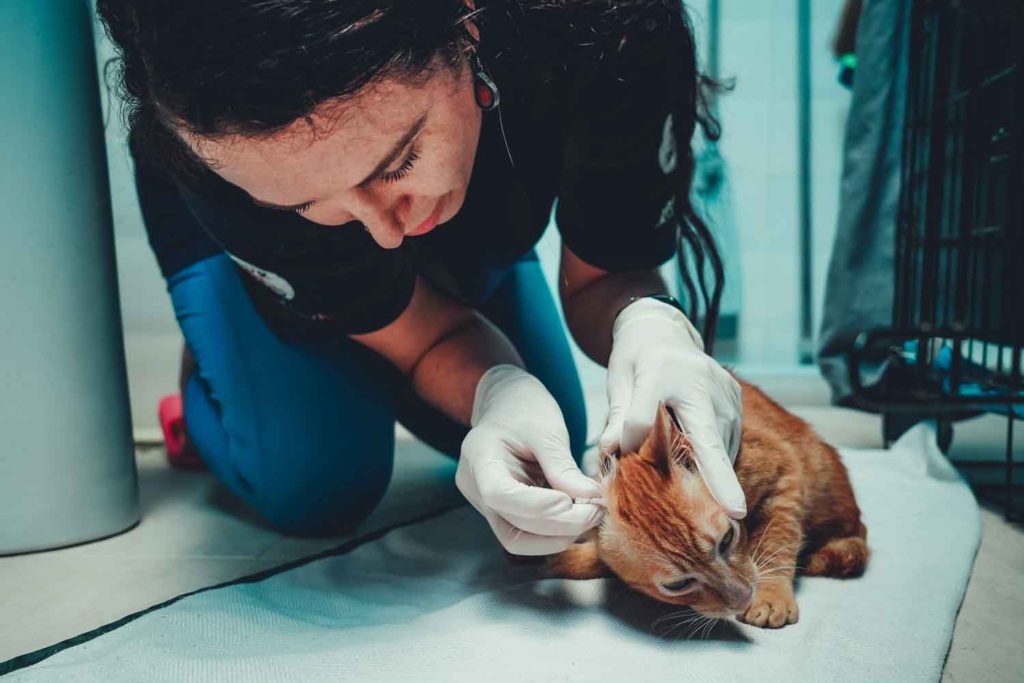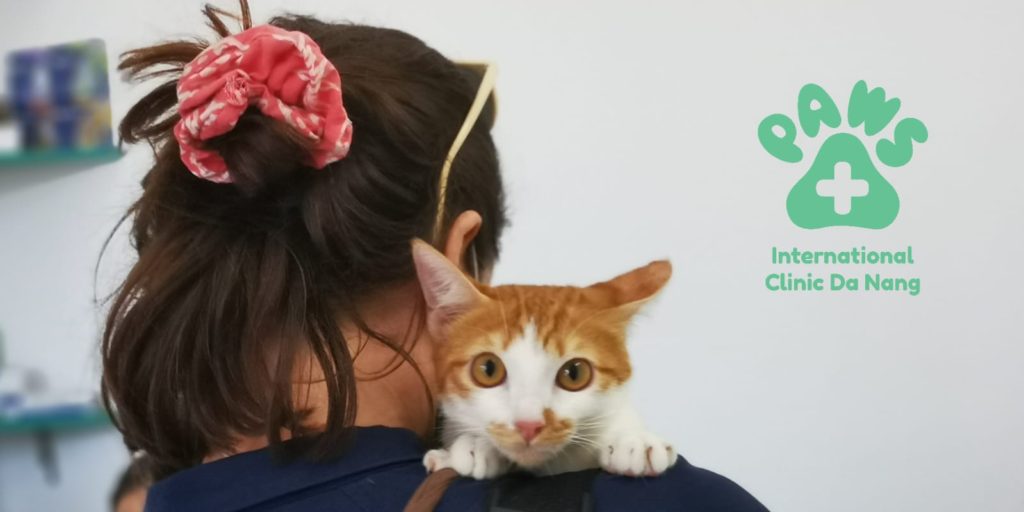Parasite Prevention

Preventative care
Parasite prevention is an important part of taking care of your cat – they will need regular preventative care to ensure both yours and their wellbeing.
There are two main types of parasites: external and internal.
External parasites include fleas, mites, and ticks. Internal parasites include worms like roundworm, tapeworm, whipworm, and heartworm.
Common signs of fleas, mites and ticks include:
- Scratching – with fleas, scratching the body, or with ear mites scratching the ears or holding the ears flat and shaking the head.
- Flea dirt (brown flecks in the fur)
- A brown/black dry substance in the ear may indicate ear mites.
- Ticks may be seen or felt on the cat’s body.
- External parasites may cause anaemia (pale gums, lack of energy).
Common signs of worms in cats include:
- Vomiting (sometimes with worms in the vomit)
- Diarrhoea (with or without blood)
- Tarry or mucous faeces
- Weight loss
- Distended abdomen
- Poor body condition and a dull coat
As infestations worsen and symptoms progress, you may see signs such as:
- Weakness
- Dehydration
- Pale lips and gums due to anaemia
- Low blood pressure
- Shock
- Death, in the most severe cases
Treatment
Cat owners should administer broad-spectrum parasite medications which include an appropriate de-flea and de-worm medications. Ideally your cat should receive parasite prevention every 3 months.
Kittens should be de-wormed every 2 weeks until they are 12 weeks of age, then every month after that until they are six months old.
It is also important to note that de-flea treatment should not be used on kittens until they are over 8-10 weeks of age. Instead, you should give very young kittens a flea bath.
Dog de-flea treatments should not be used on cats as it may be toxic.
Speak to your vet about the best treatment to use for your cats.
In addition, the following steps can be followed:
- Annual veterinary examination
- Heartworm tests may be conducted periodically.
- Provide cooked or prepared food (not raw meat) and fresh water.
- Faecal examinations may be conducted 2 to 4 times during the first year of life and 1 to 2 times each year for adults, depending on the pet’s health and lifestyle factors.



